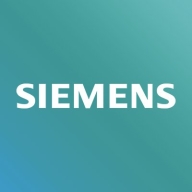

OpenText Application Quality Management and Polarion ALM are both robust solutions in the application lifecycle management category. OpenText ALM seems to have the upper hand for large organizations due to its extensive traceability and integration capabilities, while Polarion ALM is particularly valuable in regulated industries due to its strong document control.
Features: OpenText ALM delivers traceability from requirements to test execution and defects, is highly customizable, and allows integration with multiple third-party tools. Polarion ALM offers strong document management, effective configuration management, and supports both document and table views.
Room for Improvement: OpenText ALM has challenges with high licensing costs and complex interface issues, with reported difficulties in reporting functionalities and browser compatibility. Polarion ALM is perceived as expensive, with limitations in planning and task management, and a need for enhanced integration capabilities with external tools like Jira.
Ease of Deployment and Customer Service: OpenText ALM supports various deployment options including Public, Private, Hybrid Cloud, and On-premises. It receives mixed reviews for customer support, with variability in response times. Polarion ALM also offers flexible deployment options but is noted to have average support, with some users experiencing delays and limited expertise.
Pricing and ROI: OpenText ALM is noted for a high price point, which may be a barrier for smaller enterprises but provides good ROI for improved test management and time savings. Polarion ALM is similarly expensive with tangential costs for necessary add-ons, sometimes impacting ROI, but offers strong performance for price, especially useful in regulated industries.
| Product | Market Share (%) |
|---|---|
| OpenText Application Quality Management | 4.9% |
| Polarion ALM | 7.5% |
| Other | 87.6% |


| Company Size | Count |
|---|---|
| Small Business | 39 |
| Midsize Enterprise | 32 |
| Large Enterprise | 161 |
| Company Size | Count |
|---|---|
| Small Business | 9 |
| Midsize Enterprise | 3 |
| Large Enterprise | 12 |
OpenText Application Quality Management offers centralized data management, traceability, and integration capabilities. It aids in handling requirements, test planning, and defect tracking while supporting both manual and automated testing. Challenges exist in deployment and browser compatibility.
Known for its robust reporting and flexibility, OpenText Application Quality Management is tailored for large organizations requiring a comprehensive solution supporting lifecycle coverage and seamless tool integration. Users can consolidate testing processes, manage requirements, and centralize reporting across manual and automated testing. While some face issues with project tracking, outdated interfaces, and limited browser compatibility beyond Internet Explorer, it remains widely used for regression and performance testing. Integration with tools like JIRA and support for tools such as UFT and ALM PC underscore its utility.
What are the key features of OpenText Application Quality Management?In industries such as finance and healthcare, OpenText Application Quality Management is implemented to ensure rigorous testing standards. It supports test case creation and execution, defect tracking, and requirements management. Integration with JIRA and performance testing tools make it suitable for organizations needing synchronized testing environments.
The world’s first 100% browser-based ALM enterprise solution, which enables seamless collaboration across disparate teams, multi-directionally linked work items, full traceability, accelerated productivity and automated proof of compliance.
We monitor all Application Lifecycle Management (ALM) Suites reviews to prevent fraudulent reviews and keep review quality high. We do not post reviews by company employees or direct competitors. We validate each review for authenticity via cross-reference with LinkedIn, and personal follow-up with the reviewer when necessary.